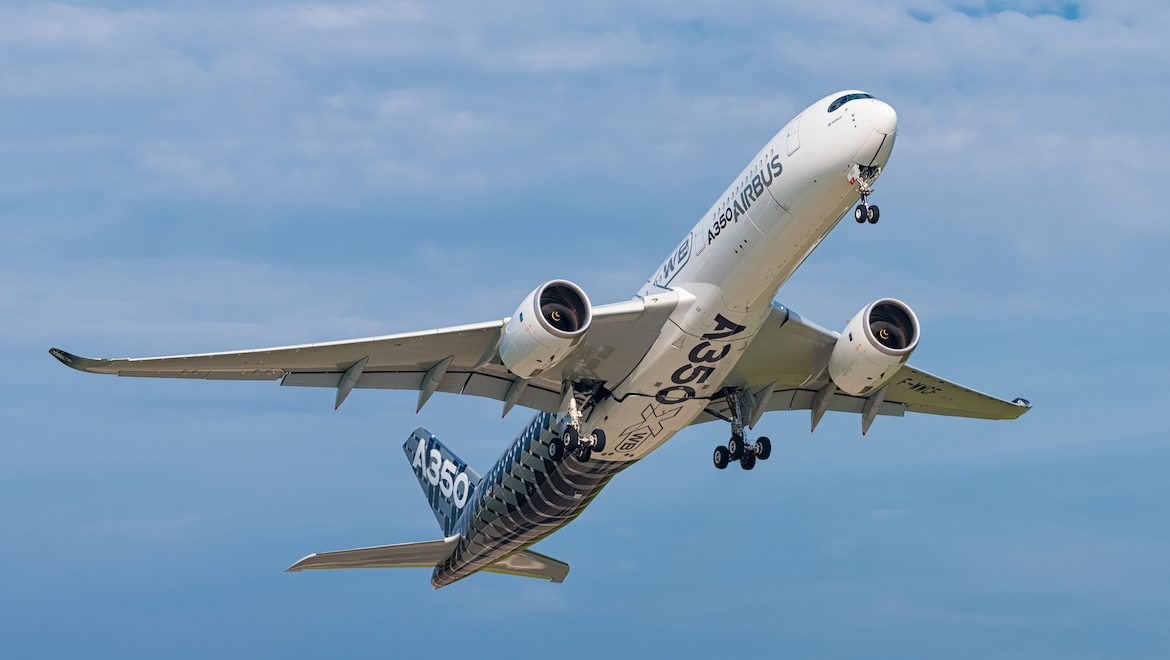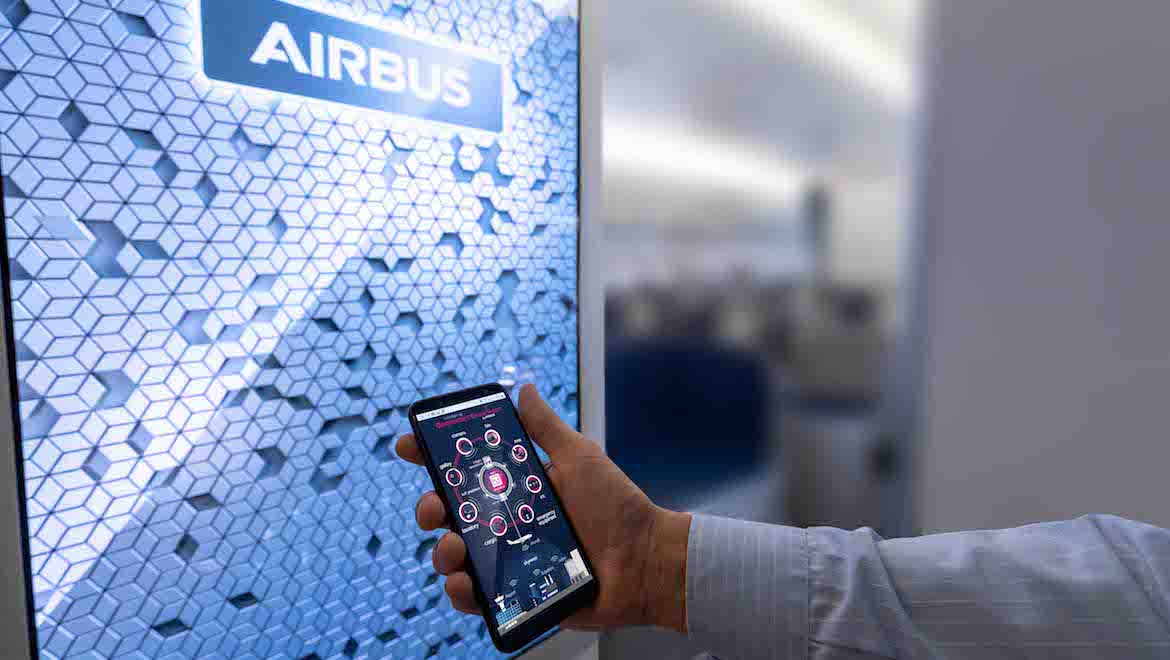
Airbus is trialling new connected technologies to make airline operations more resilient, life easier for cabin crew and improve the passenger experience.
The trials are being conducted on the manufacturer’s A350-900 flight lab aircraft, MSN002, which is configured with its Airspace by Airbus cabin.
Three prototypes will be part of the trial – a connected seat designed by Recaro called the iSeat, a connected galley designed by gategroup and a remote cabin management control system and an organic LED display – Airbus said in a statement on September 11, as well as other yet-to-be-revealed innovations.

Further, the initiative was the first step in the airframer’s Internet of Things (IoT) backbone.
“The tests allow the various elements to be operated and monitored during a normal flight cycle, especially with regard to the end-to-end data flow robustness within the systems and between them,” Airbus said in a statement.
“The next steps will continue testing of the current setup, then close the feedback loop with airlines using Airbus’ Customer Experience Teams (CET) forum, by around year-end.”
The connected cabin ecosystem would also “enable significant value-adding services for passengers, airlines and crews”.
“Airlines will be able to generate additional ancillary revenues through personalised retail and advertisement as well as new services, all enabled by the IoT approach,” Airbus said, noting airlines would be able to offer passengers a more personalised experience.
This included giving travellers the ability to order meals remotely, book overhead luggage storage space and set their individual seat positions.
There would also be operational benefits.
“Airlines will be able to improve their operational efficiency applying predictive maintenance, avoiding waste and making crew services more efficient,” Airbus said.
“Crews will find a better working environment and more efficient tools, digitally enabled by real-time data from the IoT platform throughout the cabin.”
The company’s Airspace Connected Experience platform received a Crystal Cabin award for the best customer journey experience at the 2019 APEX EXPO event in Los Angeles earlier in September.




